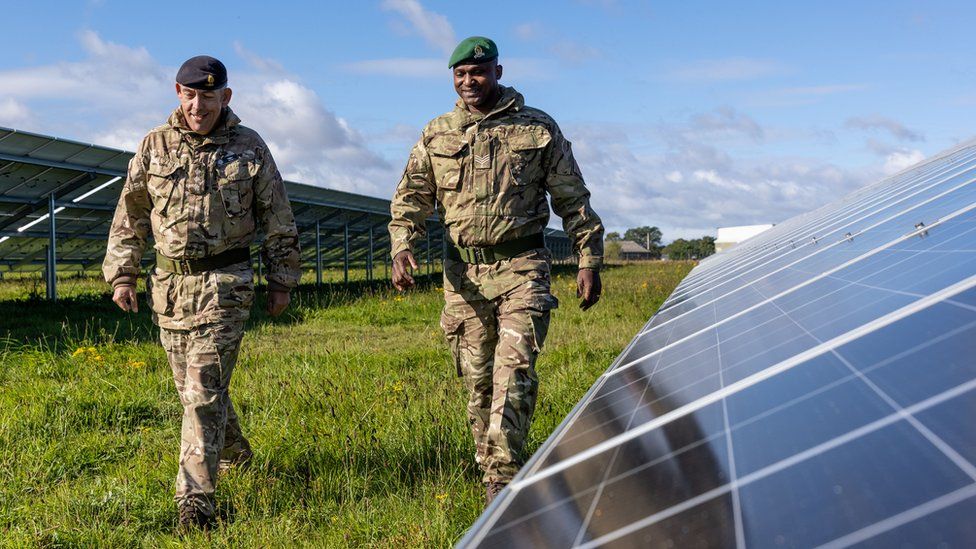-

-
-
Loading

Loading

According to the BBC, the British Army is using solar panels manufactured by companies that have been linked to the alleged exploitation of Uyghur Muslims in China's Xinjiang region. The UK Ministry of Defence has invested £200 million in solar panels for four of its sites, with JA Solar, Trina, and Qcells listed as the suppliers. A report from Sheffield Hallam University previously flagged these companies as having a "very high" exposure to production in Xinjiang. While JA Solar and Qcells stated that they were taking action to ensure forced labor was not part of their supply chains, Trina did not respond to inquiries. A Ministry of Defence spokesperson claimed that robust procedures were in place to vet and monitor the supply chain. However, Alan Crawford, one of the authors of the Sheffield Hallam report, maintained that the lack of transparency in the supply chain made it easy for firms to hide behind their anti-slavery declarations. Rishi Sunak, the UK Prime Minister, is facing pressure to take a tougher stance against China and end the country's reliance on solar production from the region. The US has accused the Chinese government of detaining over one million Uyghurs and other Muslim minorities in prison camps in Xinjiang, where detainees are forced to produce goods such as polysilicon, a core component of solar panels. China denies all allegations of human rights abuses in Xinjiang. Yalkun Uluyol, an academic from Xinjiang, stated that forced labor was prevalent across various sectors in the region and argued that green energy should involve respect for human rights and the environment, which are both absent in Xinjiang. The US government passed the Uyghur Forced Labor Prevention Act in 2021, which requires companies to verify that goods imported from Xinjiang were not produced using forced labor. The British Army's use of Chinese-made solar panels does not come as a surprise to Uluyol, who has been researching the links between Chinese manufacturers and forced labor in Xinjiang. Michael Parr, a solar expert working with Qcells, acknowledged the difficulties in conducting an independent audit in China and stated that Europe has been less attentive to the risk of forced labor in solar compared to the US. He differentiated between the three companies supplying panels for the British Army's Project Prometheus, emphasizing Qcells' efforts to clean up their supply chains. Some solar companies have already diversified their production to avoid Xinjiang, and the industry has made efforts to improve supply chain monitoring. JA Solar and Qcells both claimed to have due diligence mechanisms and processes in place to ensure that their operations and supply chains are free from forced labor. Trina did not respond to requests for comment.